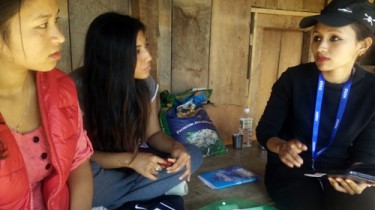Background
The WHO Violence and Injury Prevention Programme and the Global Alliance for Clean Cookstoves funded this pilot field test of the “Community-based Injury Survey with New Burns Module”. The burns module gathers detailed information on the cause of burn injury, as well as health-seeking behaviour and impacts (health and socio-economic). The primary objective was to test the survey in operational conditions; secondary objectives were to obtain indicative incidence rates of different types of injury, their causes, risk factors and impacts. This report presents a comprehensive description of the survey process and a summary of the survey results.
The rural districts of Nuwakot and Rasuwa in Nepal were selected for the field test as they have a high proportion of households using biomass fuel in traditional open fires for cooking.
Objectives
- To pilot test the community-based injury survey (with burn injury module) in field conditions using a cluster sampling survey design
- To describe the patterns of injuries observed (fatal and non-fatal) and risk factors
- To describe the impacts of the injuries on the individual and household
- To explore the link between unimproved cookstoves and burn injury in children 14 years and under
Methodology
Thirty clusters were selected for this study. The clusters were selected using the method of probability proportionate sampling relative to the number of households as determined by the 2011 census.
Associated Team Members
Project Location
Similar Projects
Introduction This is a multi-country and multi-method study that aims to test the feasibility, cost and appropriateness of three novel ...
Shifting tasks to mid-level health workers has been recommended as an effective strategy to provide care in rural and remote areas ...
Background HERD International undertook this study to assess the interventions of Karuna Foundation Nepal which focused on Education, ...
Central Bureau of Statistics (CBS), on behalf of Ministry of Federal Affairs and Local Development (MoFALD) and Ministry of Urban ...
Background In line with the constitution of Nepal (2007) which enshrined health as the basic right of citizens, the Government of ...
Background Menstrual hygiene management (MNH) challenges faced by girls in low-income countries are receiving increasing attention as ...
INSPIRE2CARE PROGRAM – A comprehensive study of household, health facility and disability assessment
Background Good health and wellbeing is one of the key component for sustainable development. Due to concerted efforts from government ...
Background Menstrual hygiene management (MNH) challenges faced by girls in low-income countries are receiving increasing attention as ...
Background The project was conducted in coordination with Save the Children, American Red Cross and NSET. The project was conducted to ...
